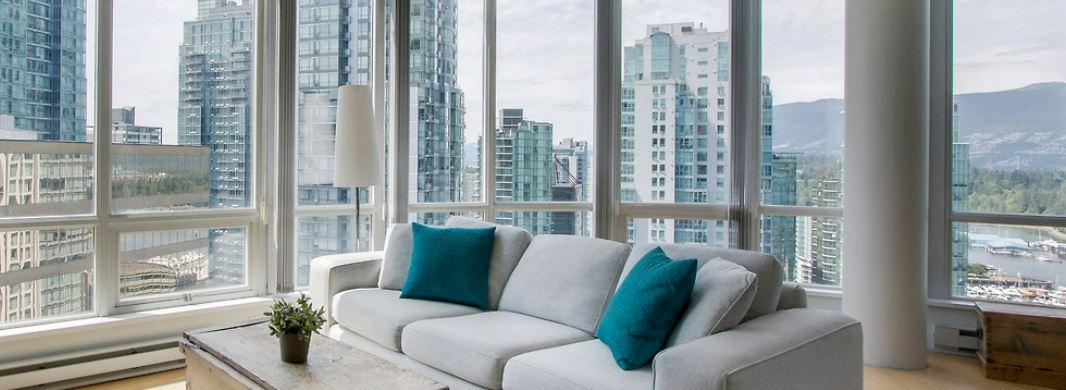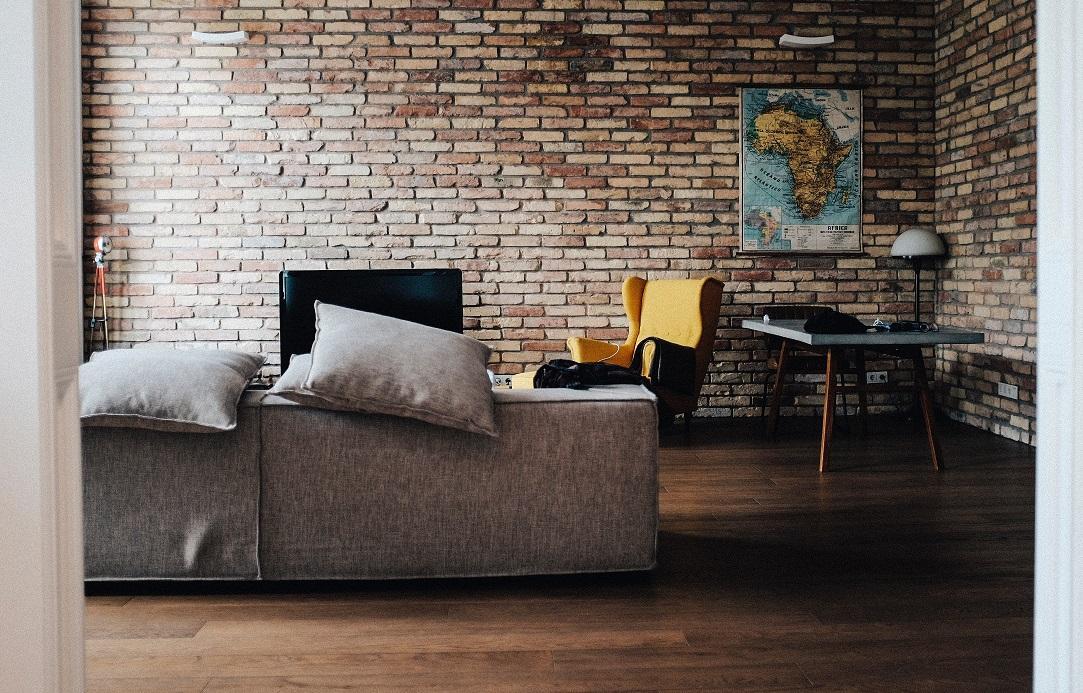Effective and Efficient Property Management in Panama City, Residential and Commercial
Implementing effective management concepts from the US we have built an international full-service property and asset management company designed to make owning offshore real estate investments hassle-free while adding value and maximizing returns on well-located quality real estate investments.
We are a full-service property management company in business since 2002. We have built a reputation for solid leadership and high standards and are regarded among the top Property Management companies in Panama. Our focus is on caring for your property and maximizing your net income. We specialize in residential properties located in the prime downtown area, where the demand for managed properties is highest.
Our Property Management team is comprised of professionals in accounting, legal, reservations, marketing, housekeeping, and maintenance.
Our services include:
- Experienced multilingual staff
- Online marketing and booking
- Utilities and administration fees payments
- Monthly owner statement with complete and organized accounting
- Maintenance and cleaning services
Online Marketing and Booking
Our service includes the promotion of your property. We have therefore several websites and options available always focusing on your wishes and needs. Additional to our flagship webpage Premiercasa we own several smaller pages with a more specified focus on various target groups. Furthermore, and especially for short-term rentals, we cooperate with Airbnb, Booking.com, and other listing pages for driving the maximum of attendance to your property.
Our advanced backend system allows us to integrate auto booking options, especially for short-term rentals. Our booking system is working fully automated and permanently synchronizing between the backend and the pages where your property is listed.
But the strongest reason for using a property management service is the complex Panamanian law for renting out properties. Even if one of the laws is accidentally violated the authorities can charge significant fines for it. Our professionals display a strong grip on legal renting and avoiding any contravention.
For a first impression, we summarized the most important laws and their content for you below. Please be aware that this is not in its entirety and just a piece of first general information.
Panama Civil Code, 1917
The Panama Civil Code of 1917 was adopted fourteen years after Panama officially became a country, which covers real estate leases in Panama. The Spanish Civil Code governs private residential real property which charges monthly rent of $150 or more, is used for either business & commercial, educational, or industrial.
Law 93 of 1973
When this law was first adopted, $150 a month rent was a considerable amount. Law 93 of 1973 provides tenants more protection from rental increases and evictions than the Panama Civil Code. It oversees the following types of properties whose monthly rent is less than $150:
- Residential leases in urban areas;
- Rentals of furnished apartments;
- Renting rooms in an apartment or house;
- Holiday homes and apartments leased for over six months for any amount of monthly rent
Sub-leases
The following leases are not included in Law 93:
- Properties located in the former Panama Canal Zone which went back to Panama control;
- Government-owned properties;
- Holiday home rentals for less than six months;
- Properties located in rural areas; and
- Daily rentals (hotels, motels, inns, and lodging houses).
- Please note that foreigners often only rent properties where the monthly rent is more than $150; thus, only the rights of tenants under the Civil Code will be focused on here.
- Tenants are entitled to the following rights:
- Monthly rental amount
- The parties involved in a lease agreement can agree on any monthly rental amount and terms of increases.

Security deposits
One month's rent as a security deposit is supposed to be paid to the Ministry of Housing. The deposit must be fully refundable to the tenant when the lease expires. Before the refund of the deposit, the landlord can make a claim for damaged property caused by the tenant or rent past due. However, foreigners are usually not aware of this law and some Panamanians overlook the law by keeping the deposits for themselves. This is a law that is not regularly enforced.
The duration of the lease
The parties involved in a lease can agree on any length in time. Tenants can break a lease as long as they provide 30 calendar days written notice before the next rental payment.
Utility bills
Internet, phone, electricity, and cable TV can be placed in the renter's name to be paid by him/her. However, there are certain services and utilities that the landlord is responsible for paying and cannot be transferred to the tenant, which is (but not limited to) monthly condo homeowner's association fees and water. The landlord might inflate these costs into the monthly rent so beware. On the other hand, commercial property leases normally require the renter to pay for water, utilities, and building maintenance.
Cost of repairs
Structural cracks & wear and tear, plumbing, and electrical wires are normally paid for by the landlord.
Triple lease agreements
Rental leases must be prepared in three original copies. One copy is for the renter, the second for the landlord, and the third copy for the Panama Ministry of Housing.
However, in reality, foreigners do not usually have knowledge of this law and many Panamanians might ignore it, so a copy is made for the landlord and another copy is for the renter.
Protection of foreign tenants
The Panama Civil Code provides equal protection for its citizens' leases as well as foreigners'. Foreign tenants are often asked to provide to first month's security along with a damage deposit. There are cases in which a landlord might request a personal reference letter from a Panamanian. The preferable methods for paying rent are either cash or checks from local banks.
Utilities and administration fees payments
Our excellent service was developed to bring the best possible benefit to our clients. Because of this reason we include the utility service and fee payment as part of the property management service. Our in-house service company 'Panama Casa Services' offers flexible models for individual needs. For your full pleasure, we don't want to sell a standardized service, of course, our clients can do parts of the management process as e.g. the utility and fee payment on their own also if we highly recommend the outsourcing to our professionals. The following paragraph shows the general setting for the utility service and steps which need to be done. For private persons this could become really painful due to the high volume of bureaucracy this brings with it.
An Individual Applying for Panama Electrical and Gas Services
The following documents are required:
• Copy of passport or national ID card (cedula issued by Panama Immigration);
• Copy of the Certificate of Public Registry of a Lease or the Title Deed of property ownership or Certificate of Address issued by a competent authority, which certifies ownership or legal possession of the property.
Legal Entity Applying for Panama Electrical and Gas Services
The following documents are required:
• Copy of the ID of the legal representative (passport, cedula issued by Panama immigration);
• Copy of the ID of the person authorized to act on the legal entity's behalf (passport, cedula issued by Panama immigration).
• Original notarized letter authorizing the 3rd party the right to act on the legal entity's behalf regarding obtaining electrical and gas services;
• Copy of the Certificate of Public Registry of the Panama corporation or Panama Private Interest Foundation;
• Copy of the Certificate of Public Registry of a Lease or the Title Deed of property ownership or Certificate of Address issued by a competent authority, which certifies ownership or legal possession of the property.
• If there is a new building or unoccupied facility: bring a copy of the Occupancy Permit.
What to Know About Gas Connection
Central gas services are provided in many apartment buildings in Panama City, which are included with the Condominium Homeowners Association (HOA). So, this is not the responsibility of the apartment owner or tenant. The gas is always available so there is no need for reconnection services.
In Panama City, two companies provide bottled gas, Panagas, and Tropigas.
In older apartment buildings in Panama City, there is a line from the kitchen to an area outside that connects with large gas tanks, which last much longer than the smaller botted gas containers. When the gas runs out, you can make a call to the company providing the service to replace it. In the meantime, you can attach a small gas bottle while you wait for the big tank to be replaced.
If you live in a house, contact the gas company to buy a new gas tank if none is installed on the property. When the tank is near empty, call the company to have it refilled, which takes about two to five days. The refilling service should be paid when the company refills.
Contacts for the two gas companies in Panama City
• Tropigas
(507)206-0088
• Panagas
(507)216-0155
What to Know About Electricity Connection
Union Fenosa provides electricity in Panama. You will need to bring your housing lease agreement or the property's title deed to the company, as well as your identification documents (passport or photocopy of it), and pay a deposit. An appointment will be scheduled where an employee is sent to your home to switch on the service. It can take from 1-2 weeks, so we recommend you begin the process as soon as you have the housing lease agreement or title deed.
How to Pay Electricity Bills
Your bill is determined based on an electricity meter. The electricity bill is left near the front door of the apartment building or the gate at your home.
You can either pay your electricity bills online or make the payment at a Rapid Money or E-Pago kiosk located in supermarkets and malls. Just hand the bill to the clear and pay. The E-Pago payments take only a few hours, while the Rapid Money payments can take a couple of days to be credited.
Overdue Electricity Payments
The electricity is turned off if two months of non-payment take place. To retain the service, you can pay for both months instantaneously when the second bill arrives.
Union Fenosa
http://www.gasnaturalfenosa.com.pa/pa/1285084426281/inicio.html (In Spanish)
Telephone: (507) 315-7222
What to Know About Panama Water Service
IDAAN, a government-run company, provides Panama City water.
Just like how you would have your electricity turned on, bring the title deed along with your passport (or a photocopy) to IDAAN, and pay a deposit. An appointment will be scheduled where an employee is sent to your home to switch on the water. While IDAAN is responsible for the water supply up to the house, it is the responsibility of the owner to maintain the water supply inside the premises.
In the case of leased premises, the water bills are paid by the tenant. The process for switching on the water supply is the same as a homeowner's, except instead of the title deed, the tenant must present a copy of the lease agreement to IDAAN.
In the case of condominium buildings, the water is always turned on and the water bills are paid by the Homeowners Association (HOA).
Tap water is safe to drink in Panama City, as well as in most of the country. Tap water in the Bocas del Toro province is not safe to drink, so there is bottled water which is affordable and available everywhere.
Paying Water Bills
You can either pay your water bills online or make the payment at a Rapid Money or E-Pago kiosk located in supermarkets and malls. The E-Pago payments take only a few hours, while the Rapid Money payments can take a couple of days to be credited.
IDAAN: https://www.idaan.gob.pa/
(Instituto de Acueductos y Alcantarillados Nacionales) (in Spanish)
Telephone: (507) 523-8570
Optimizing your Property Taxes
Regardless of your status as a full-time resident, absentee landlord, or occasional visitor, you are subject to property taxes if you own property in Panama. Every property is different and because of this, there are myriad different variables that lead to different tax obligations and benefits. Panama Casa Services includes in the professional property management an individual tax optimizing strategy perfectly fitting to your settings.
This article provides you with legal tax-saving strategies for property owners as well as those who are harboring the idea to buy and rent out a property in Panama.

Tax strategies for Prospective Property Owners in Panama
There are certain steps you need to understand fully when it comes to purchasing a property in Panama. This will educate you about how much property tax you will be paying and if there are strategies to alleviate the property tax burden. The following are some details that should inquire about before buying Panama property:
Inquire if the property has tax exoneration on the value of improvements, and if so, for how long, with improvements, mean any building constructed from the ground up. The taxes are determined by the assigned value of the land. Properties of the registered values under $30,000.00 will in most cases be subject to no property tax obligation.
Inquire if the property is owned in the name of an individual or of a corporation. If the property is owned by the latter, you should consider purchasing the corporation assuming the registered value of the property is considerably lower than your purchase price. The reason being is the tax values stay the same if the shares of the corporation are sold.
Inquire about the property tax rate that is applied currently to your property. Depending on the property's location and how old it is, it can have lower or higher property tax rates which are calculated annually according to the registered value.
Tax strategies for property owners in Panama
For already an owner of a Panama property, the following steps might come in handy to ensure your property taxes are as low and as legally as possible.
First thing first, register your property with the Tax Authority (DGI) which is the Panamanian equivalent to the IRS. They will give you a Tax Identification Number (NIT) to be able to enter the E-Tax2 system. If you don't register the property with the Tax Authority, you might have to pay more property taxes, as those start counting from the first day the property is recognized at the national land registry.
Always make sure that your property is updated within the E-Tax2 system and if the property is still exonerated from taxes. Also, make sure that tax exoneration is applied correctly. If your property is not updated, you might receive an inaccurate balance of property taxes due and will be unable to transfer the property until the information is updated in the E-Tax2 system and the due balance is paid for.
If the improvement's period of exoneration is coming to an end or has already ended, it is important to find out about the tax status of your property and come up with a tax optimization strategy to pay only what is required of you.
If your property is registered under the highest bracket, evaluate if it is worth it to show a new voluntary appraisal for the property's value and register this updated value so that you can receive the preferential lower tax rate, which is around 50% less per year.
To prevent from paying interests on due taxes and surcharges as penalties, make sure to set a reminder to pay your property taxes every 4 months or the whole year ahead to get a 10% discount.
A notification will be sent your way to inform you about any due taxes. The tax administration office will accumulate them automatically, along with the penalties (if applicable), and not paying them could eventually put at risk the ownership of the property.
If you are planning to do a large renovation for your property, it may be advantageous to register the partial or total demolition and then declare the remodeling, since you can exonerate the value of the new improvements for a decade. When it comes to improvements, you are obliged to request the construction permit and formally declare the renovations/remodeling, though many homeowners skip this step, putting their property at risk.
Absentee owners who have hired property management services companies should ask their property managers to inquire with a property tax expert about these crucial tax-related matters.
